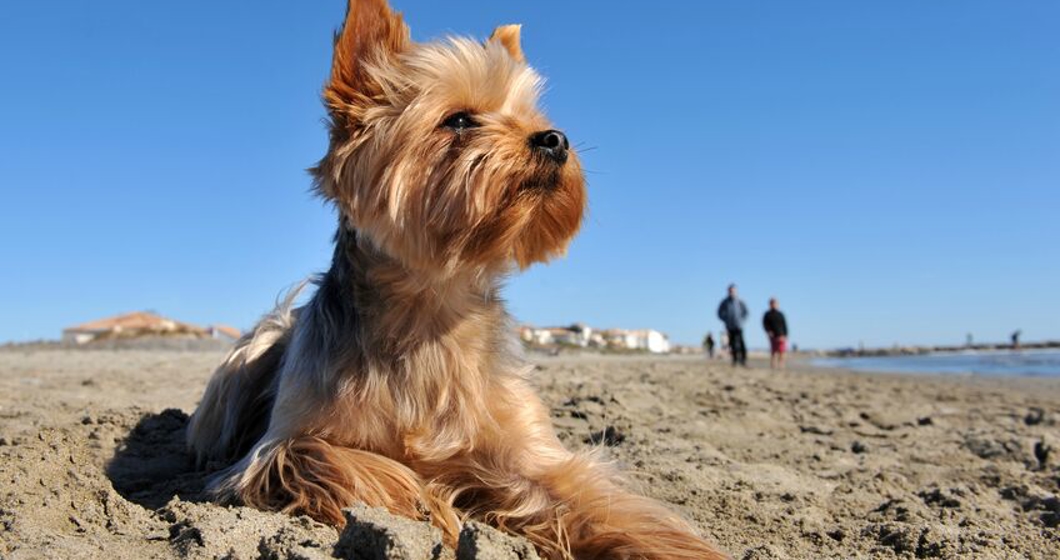Jacksonville is home to some of the most beautiful beaches in the country, but did you know that pet waste can pose a serious threat to their cleanliness and safety? While our furry friends may bring joy and companionship into our lives, they also produce a significant amount of waste that can pollute the ocean waters and harm marine life. In this blog post, we'll explore why pet waste is a hazard to Jacksonville beaches and what we can do to prevent it from damaging these natural treasures. So grab your sunscreen and let's dive in!
What is pet waste?
Pet waste is an inevitable byproduct of pet ownership. Dogs produce feces that must be disposed of properly to prevent health hazards for both humans and animals alike. Pet waste contains harmful bacteria and parasites, including E.coli, salmonella, giardia and roundworms. These pathogens can contaminate soil, water sources and other surfaces if not promptly removed. Despite being biodegradable over time (under certain conditions like watering or sun exposure) it can take months for the feces to decompose naturally. As they break down over time they emit unpleasant odors (as well as expose the environment to those parasites and pathogens!) which can ruin the beach experience for visitors.
It is important as responsible owners that we do our part in making sure our pets' waste doesn't become a hazard on Jacksonville beaches or anywhere else where others may come into contact with it.
How does pet waste pollute beaches?
Pet waste is a common sight in parks and beaches around Jacksonville. However, it's not just an eyesore but also poses a serious hazard to the environment. When pet waste is left on the ground, rainwater can wash it into nearby bodies of water such as rivers and oceans. Once in the water, pet waste releases harmful bacteria and nutrients that contribute to algal blooms. Algal blooms are large concentrations of algae that deplete oxygen levels within the water, which causes harm to aquatic life such as fish and turtles. Besides contributing to algal blooms, pet waste also contains high levels of nitrogen and phosphorus which further pollute our waters by promoting excessive growth of weeds or other unwanted plants.
In addition to this environmental damage, pet feces often contain harmful parasites like E.coli or salmonella that pose health risks for people who come into contact with them. It's crucial we realize how hazardous pet waste can be when left unattended on beaches in Jacksonville. The solution lies in disposing of this waste properly and always remember to carry dog poop bags wherever you go with your pets!
What are the consequences of pet waste on beaches?
As we mentioned, pet waste can have serious consequences on the cleanliness, safety and overall environment of our beaches.
In addition to the above, unsightly piles of pet waste left on beaches can not only make for an unpleasant experience for visitors but also deter wildlife from using the area for nesting or feeding purposes. Many species of wildlife, including shorebirds, sea turtles and marine mammals, rely on Jacksonville's beaches as important habitats for feeding, nesting and resting. However, when pet waste is left on the beach, it can create a barrier that prevents these animals from accessing the area. In some cases, the smell and presence of pet waste can even scare off wildlife, causing them to seek out other habitats that may be less suitable for their needs.
Neglecting to properly dispose of pet waste may seem like a small act; however, its effect on our beaches' ecosystem should not be underestimated as it could lead to significant environmental damage if neglected over time.
How can we prevent pet waste pollution on beaches?
Preventing pet waste pollution on beaches requires a collective effort from pet owners, beachgoers and local authorities. The first step in preventing this type of pollution is to educate the public about its dangers.
Pet owners must be responsible for their pets' waste by picking it up immediately and disposing of it properly. They should carry poop bags with them at all times and dispose of them in designated trash cans or take them home. Pet-friendly beaches often provide poop bag stations for convenience.
Beachgoers can also help prevent pet waste pollution by reporting any sightings of unattended or unleashed pets leaving waste behind. This information can then be relayed to local authorities who can enforce regulations pertaining to pet behavior on the beach.
Local authorities have an important role in preventing pet waste pollution on beaches as well. They should provide adequate signage reminding people to pick up after their pets, enforce leash laws and issue fines for non-compliance.
Everyone has a responsibility to maintain clean and healthy beaches free from harmful pollutants like pet waste. By working together, we can preserve our beautiful Jacksonville beaches for future generations to enjoy!
It's important to keep our Jacksonville beaches clean and free from pet waste after a visit. DoodyCalls can also help you clean up any pet waste. They offer commercial services that help keep common areas clean at apartment complexes and parks, as well as residential services. They take poop seriously so you don't have to!


